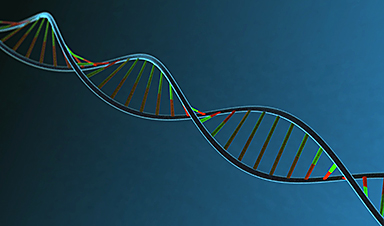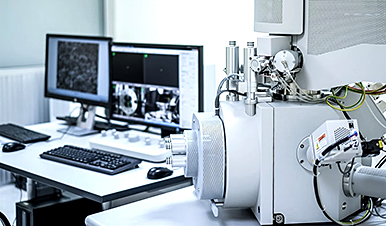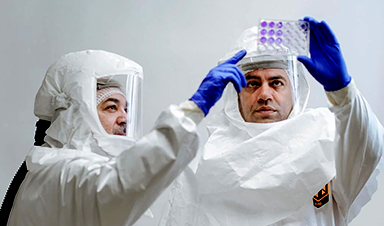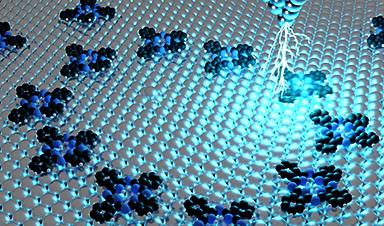Boosting function of natural killer cells with magnetic nanoparticles could make cancer immunotherapy more efficient, according to a Northwestern Medicine study published in ACS Nano (“Magneto-Activation and Magnetic Resonance Imaging of Natural Killer Cells Labeled with Magnetic Nanocomplexes for the Treatment of Solid Tumors“).
This method could unlock the potential to use natural killer (NK) cells on a variety of solid tumors, according to Dong-Hyun Kim, PhD, associate professor of Radiology in the Division of Basic and Translational Radiology Research and senior author of the study.
“People have had trouble applying NK cells to solid tumors,” said Kim, who is also director of Biomaterials for Image Guided Medicine (BIGMed) laboratory and a member of the Robert H. Lurie Comprehensive Cancer Center of Northwestern University. “If we can provide an easy path to modulate NK cells, perhaps this can become a useful therapy.”
Most cell-based immunotherapies target T-cells, part of the body’s adaptive immune system. However, these chimeric antigen receptor (CAR) T-cell therapies come with a high price tag, long incubation period and strong side effects.
On the other hand, NK cells are part of the body’s innate immune system and quicker to respond to anything foreign. Many scientists have explored the possibility of NK cell immunotherapy, according to Kim, but that too has barriers.
“It’s pretty hard for these cells to penetrate inside the tumors which have thick barrier tissues,” Kim said.
Magnetically activated NK cells contacting cancer cells.
Methods to boost NK cell function using cytokines have largely fallen flat and are subject to some of the same problems as seen in CAR T-cell therapy — high cost and lengthy manufacturing time. However, Kim’s previous work with nanoparticles inspired a different approach.
Kim and his collaborators designed a magnetic nanocomplex that binds with NK cells and when activated with an alternating magnetic field, exerts force on the exterior of the cell, promoting secretion of cytotoxic compounds. Testing this nanocomplex in animal models of hepatocellular carcinoma, the investigators found that magnetic activation increased the cancer-killing ability of NK cells when injected into solid tumors.
Further, these nanoparticles are easily visualized on magnetic resonance imaging, allowing for precise monitoring of NK cell distribution during and after injection.
“This creates a stronger NK cell, and can hopefully enhance the efficacy of the treatment,” Kim said.
News
How to Assess Nanotoxicity: Key Methods and Protocols
With their high surface area and enhanced physicochemical properties, nanomaterials play a critical role in drug delivery, consumer products, and environmental technologies. However, their nanoscale dimensions enable interactions with cellular components in complex and [...]
Nanotech drug delivery shows lasting benefits, reducing need for repeat surgeries
A nanotechnology-based drug delivery system developed at UVA Health to save patients from repeated surgeries has proved to have unexpectedly long-lasting benefits in lab tests – a promising sign for its potential to help human patients. [...]
Scientists Just Found DNA’s Building Blocks in Asteroid Bennu – Could This Explain Life’s Origins?
Japanese scientists detected all five nucleobases — building blocks of DNA and RNA — in samples returned from asteroid Bennu by NASA’s OSIRIS-REx mission. NASA’s OSIRIS-REx mission brought back 121.6 grams of asteroid Bennu, unveiling nitrogen-rich organic matter, including DNA’s essential [...]
AI-Designed Proteins – Unlike Any Found in Nature – Revolutionize Snakebite Treatment
Scientists have pioneered a groundbreaking method to combat snake venom using newly designed proteins, offering hope for more effective, accessible, and affordable antivenom solutions. By utilizing advanced computational techniques and deep learning, this innovative [...]
New nanosystem offers hope for improved diagnosis and treatment of tongue cancer
A pioneering study has unveiled the Au-HN-1 nanosystem, a cutting-edge approach that promises to transform the diagnosis and treatment of tongue squamous cell carcinoma (TSCC). By harnessing gold nanoparticles coupled with the HN-1 peptide, [...]
Global Trust in Science Is Stronger Than Expected – What’s Next?
A landmark global survey conducted across 68 countries has found that public trust in scientists remains robust, with significant support for their active involvement in societal and political matters. The study highlights the public’s [...]
Microplastics in the bloodstream may pose hidden risks to brain health
In a recent study published in the journal Science Advances, researchers investigated the impact of microplastics on blood flow and neurobehavioral functions in mice. Using advanced imaging techniques, they observed that microplastics obstruct cerebral blood [...]
AI Surveillance: New Study Exposes Hidden Risks to Your Privacy
A new mathematical model enhances the evaluation of AI identification risks, offering a scalable solution to balance technological benefits with privacy protection. AI tools are increasingly used to track and monitor people both online [...]
Permafrost Thaw: Unleashing Ancient Pathogens and Greenhouse Gases
Permafrost is a fascinating yet alarming natural phenomenon. It refers to ground that remains frozen for at least two consecutive years. Mostly found in polar regions like Siberia, Alaska, and Canada, permafrost plays a [...]
Frequent social media use tied to higher levels of irritability
A survey led by researchers from the Center for Quantitative Health at Massachusetts General Hospital and Harvard Medical School has analyzed the association between self-reported social media use and irritability among US adults. Frequent [...]
Australian oysters’ blood could hold key to fighting drug-resistant superbugs
Protein found in Sydney rock oysters’ haemolymph can kill bacteria and boost some antibiotics’ effectiveness, scientists discover An antimicrobial protein found in the blood of an Australian oyster could help in the fight against [...]
First U.S. H5N1 Death Sparks Urgency: Scientists Warn Bird Flu Is Mutating Faster Than Expected
A human strain of H5N1 bird flu isolated in Texas shows mutations enabling better replication in human cells and causing more severe disease in mice compared to a bovine strain. While the virus isn’t [...]
AI Breakthrough in Nanotechnology Shatters Limits of Precision
At TU Graz, a pioneering research group is leveraging artificial intelligence to drastically enhance the way nanostructures are constructed. They aim to develop a self-learning AI system that can autonomously position molecules with unprecedented precision, potentially [...]
How Missing Sleep Lets Bad Memories Haunt Your Mind
Research reveals that a lack of sleep can hinder the brain’s ability to suppress unwanted memories and intrusive thoughts, emphasizing the importance of restful sleep for mental health. Sleep deprivation has been found to [...]
WHO issues new warning over ‘mystery virus’ and calls for return of COVID restrictions
The World Health Organization (WHO) has called for the reinstatement of restrictions implemented during the COVID-19 pandemic as cases of human metapneumovirus (HMPV) continue to surge. While hospitals in China are overwhelmed with positive [...]
A Breath Away From a Cure: How Xenon Gas Could Transform Alzheimer’s Treatment
A breakthrough study highlights Xenon gas as a potential game-changer in treating Alzheimer’s disease, demonstrating its ability to mitigate brain damage and improve cognitive functions in mouse models. A forthcoming clinical trial aims to test its [...]






















